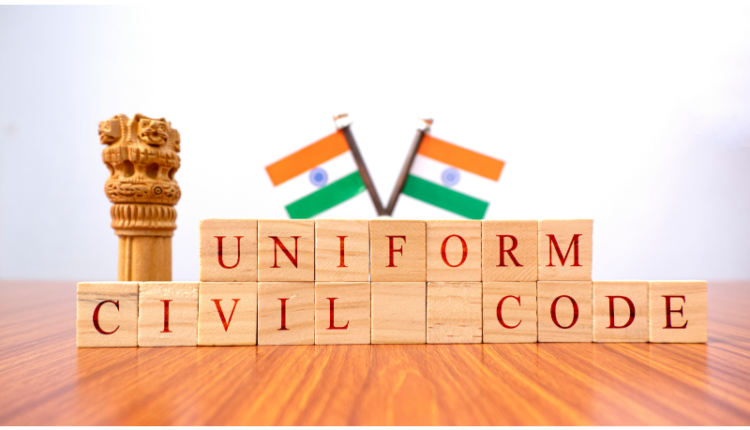- Advertisement -
UCC EXPLAINED | What Is Uniform Civil Code And Why UCC Is Necessary?
- Advertisement -
The Full Form of UCC is Uniform Civil Code. The UCC issue has been a heated debate topic for a long time. There is a debate on this issue across the country, and opposition parties are raising questions about the Uniform Civil Code by giving their arguments. Let us understand in simple language what the Uniform Civil Code is and why there has been controversy regarding UCC. And in which countries is it applicable?
What Is Uniform Civil Code
Uniform Civil Code means that uniform laws apply to every citizen living in India, irrespective of religion or caste. Under the Uniform Civil Code, the same law applies to all faiths regarding marriage, divorce, and property division. If the Uniform Civil Code is implemented, the same law will apply to citizens of every religion.
Read Also : Gyanvapi History: Whose Land Is It? Temples Or Mosques In The Gyanvapi Complex
How Did The UCC Concept Originate
The Civil Code originated in the report submitted by the British Government in 1835, which stressed the need for uniformity in the codification of Indian law relating to crimes, evidence, and contracts. This report recommended keeping the personal laws of Hindus and Muslims out of codification.
When British rule ended, there were too many laws relating to personal issues, forcing the government to form the B.N. Rao Committee in 1941 to codify Hindu law. The function of the Hindu Law Committee was to understand the need for common Hindu laws. In its report, the committee recommended codified Hindu law, in which women would have equal rights. After reviewing the 1937 Act, the committee recommended a civil code of marriage and succession for Hindus.
Why Is UCC Is Necessary
India is the only country where there are different laws based on caste and religion. In our country, other faiths have various marriage acts. Because of this, social relations like marriage and population are affected. The country has demanded a Uniform Civil Code, bringing all castes, religions, classes, and sects into one system. India is a secular country; this will become clear once this reform is made in the country’s Constitution.
Moreover, different laws of different religions put a burden on the judiciary. Therefore, if the Uniform Civil Code is implemented, then the decisions pending in the courts will be resolved soon. There will be the same law for everyone in marriage, divorce, adoption, and property division. At present, people of every religion have their own laws. One of its objectives is to provide security to weaker sections, including women and religious minorities. Implementing the Uniform Civil Code will simplify the rules that differ based on religious beliefs, such as the Hindu Code Bill, Shariat Law, etc.
Read Also : Lok Sabha vs. Rajya Sabha : Difference Between Lok Sabha And Rajya Sabha
Who Is Opposing The Uniform Civil Code
The Muslim community opposes UCC the most. The Muslim community believes in Sharia law and keeps religious customs above. But doing so is against the Constitution. According to Article 44, principles may differ in the country, but the law should be the same for all Indians.
While criticizing the Uniform Civil Code, some people also say it is being imposed. It is not democratic to do so. However, the right thing is that in a democracy, men and women should have equal rights in marriage, etc.
Read Also : Bali Indonesia Tour Guide : The Ultimate Travel Guide, Flights, Hotels, Resorts And Activities
Why Is It Difficult To Implement a UCC In India
People of different religions and communities live in India. Integrating uniform civil law in such a diverse and vast country is a challenging task. On one hand, Hindus follow personal laws, but the practices and customs of their communities in different states differ. Similarly, Muslim personal laws are also not the same for every Muslim. An example of this is the adherence by some Bohra Muslims to the principles of Hindu law in matters of succession.
Different states also have other laws in matters of property and inheritance. Additionally, Christian-majority states in Northeast India, such as Nagaland and Mizoram, have their own laws. Goa also has different rules for Catholic Christians and other communities. The issue of the Uniform Civil Code has been raised many times in India. States have been making their laws since 1970. After many years, an amendment was created in 2005, after which the existing Central Hindu Personal Law gave daughters equal rights to ancestral property as sons. In such a situation, it is tough to implement CCC in a country like India.
- Advertisement -

